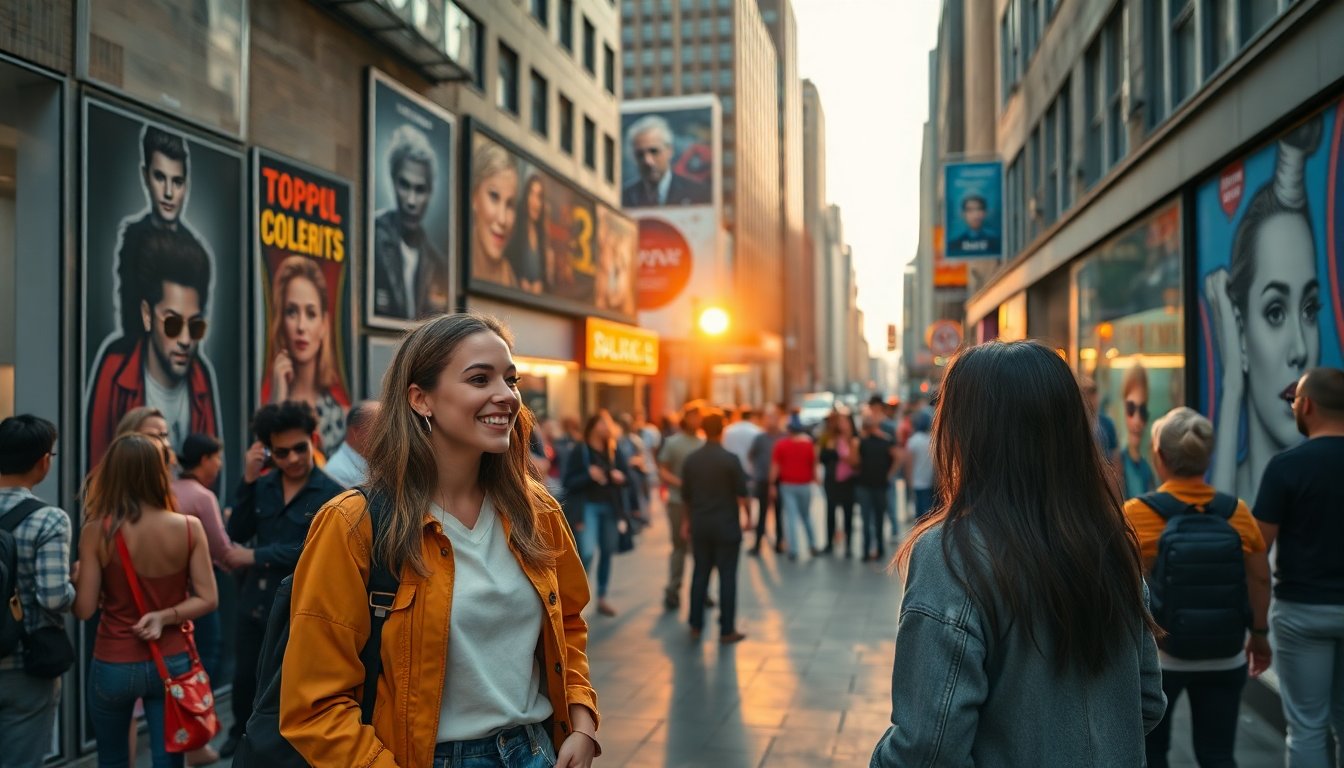Table of Contents
The world of American celebrities is a vibrant tapestry woven with glamour, influence, and societal impact. From the silver screen to social media, these figures capture public attention and often become cultural icons. This article delves into the significance of American celebrities, exploring how they shape norms, influence behaviors, and reflect societal values.
Understanding the phenomenon of celebrity culture requires examining the dynamics of fame in contemporary society. With the advent of technology, particularly social media, our perception and engagement with celebrities have transformed dramatically. The rapid dissemination of information and the ability for fans to interact directly with their idols have blurred the lines between public and private life.
The Evolution of Celebrity Culture
The concept of celebrity is not new; however, the American celebrity has evolved into a multifaceted entity over the decades. In the early 20th century, celebrities were predominantly actors and musicians whose fame was primarily cultivated through traditional media like radio, film, and television. Today, the rise of the internet has introduced a new breed of celebrity. Social media influencers, reality TV stars, and YouTubers have emerged as significant figures, challenging traditional notions of fame.
From Hollywood to Social Media
Hollywood has long been the epicenter of celebrity culture, producing legendary figures who have left lasting impressions on audiences. Icons such as Marilyn Monroe and James Dean exemplified the allure of stardom, while their lives often mirrored the complexities of fame. However, the shift toward social media has democratized fame, allowing ordinary individuals to become celebrities through platforms like Instagram and TikTok. This shift has redefined the parameters of celebrity status and reshaped public expectations.
Social media has enabled celebrities to cultivate a more personal connection with their audiences. Fans no longer merely consume content; they engage with it, forming communities around shared interests. This interactivity has led to the rise of the ‘micro-celebrity,’ where individuals leverage social media to build their brands and influence. As a result, the traditional gatekeepers of fame—such as talent agencies and studios—are no longer the sole arbiters of who becomes a celebrity.
The Influence of American Celebrities on Culture
American celebrities wield considerable influence over cultural trends, fashion, and public opinions. Their actions and statements can spark movements, impact consumer behavior, and even affect political discourse. For instance, celebrities like Oprah Winfrey and Leonardo DiCaprio have used their platforms to advocate for social justice and environmental causes, respectively, demonstrating the potential for celebrities to drive positive change.
Shaping Societal Norms
Through their visibility, celebrities often serve as role models, shaping societal norms and values. The portrayal of diverse identities in media has expanded due to the influence of celebrities who advocate for representation. Figures like Beyoncé and Laverne Cox have not only achieved immense success but have also challenged stereotypes and promoted inclusivity. This shift in representation can inspire new conversations around race, gender, and sexuality, fostering a more inclusive society.
Moreover, the glamorization of lifestyle choices by celebrities can have significant ramifications. The endorsement of certain products or trends by famous individuals can lead to widespread adoption among fans, demonstrating the power of celebrity culture in shaping consumer behavior. The impact of celebrity endorsements is evident in industries ranging from fashion to health and wellness, where their influence can drive trends and create market demand.
The Darker Side of Celebrity Culture
While the influence of American celebrities can be positive, it is essential to acknowledge the darker aspects of celebrity culture. The intense scrutiny and pressure to maintain a public persona can lead to mental health struggles among celebrities. Issues such as anxiety, depression, and substance abuse are prevalent in the entertainment industry, highlighting the challenges faced by those in the public eye.
Moreover, the obsession with celebrity can lead to a distorted perception of reality among fans. The idealized portrayals of life by celebrities can create unrealistic expectations and contribute to feelings of inadequacy among individuals who compare themselves to these figures. This phenomenon raises critical questions about the implications of celebrity culture on societal well-being.
Understanding the phenomenon of celebrity culture requires examining the dynamics of fame in contemporary society. With the advent of technology, particularly social media, our perception and engagement with celebrities have transformed dramatically. The rapid dissemination of information and the ability for fans to interact directly with their idols have blurred the lines between public and private life.0


